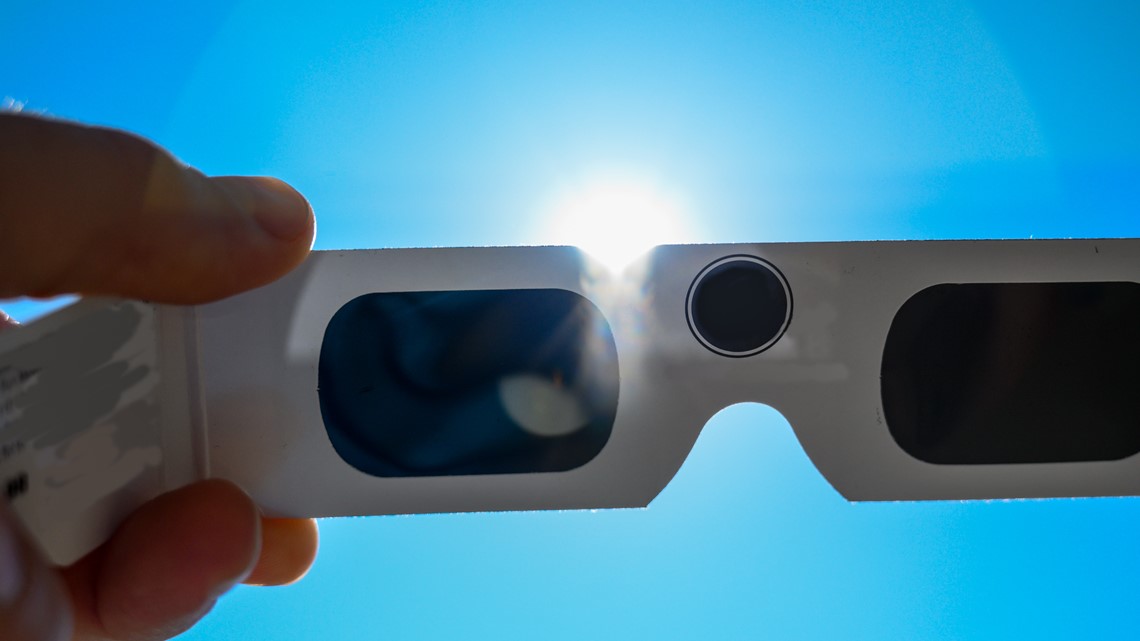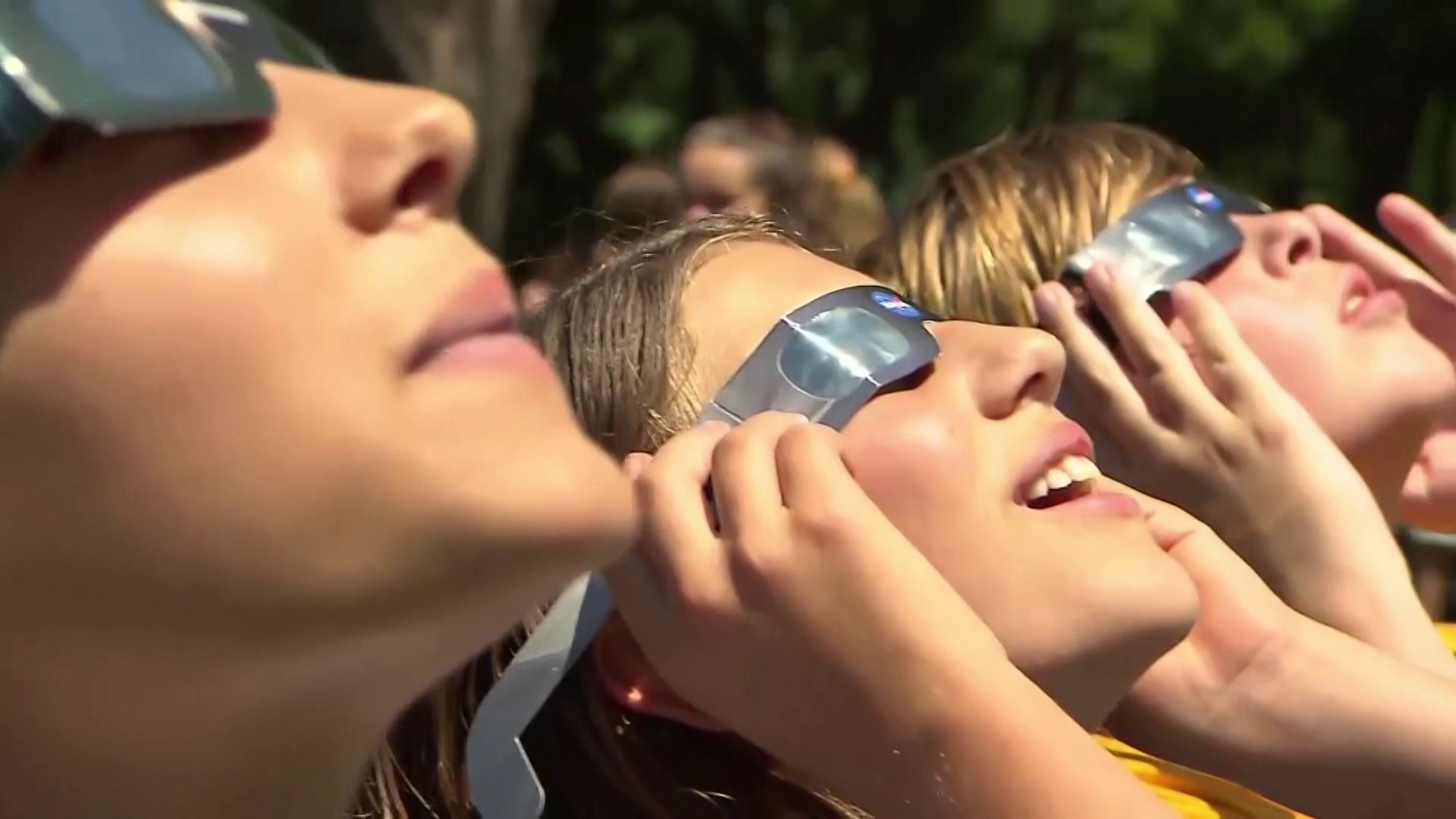ARKANSAS, USA — Spanish version: Para español haga clic aqui.
A total solar eclipse will take place on April 8, 2024 and many people are looking forward to the unique event.
Although it can be tempting to look directly at the sky during an eclipse, the American Academy of Ophthalmology (AAO) says this can cause permanent damage and you can risk going blind.
Risks
Looking directly at the sun with or without an eclipse "can seriously damage your eyes," AAO said. Doing so can cause permanent damage such as solar retinopathy blindness. According to the Government of Western Australia Department of Health, solar retinopathy is "commonly associated with sungazing or eclipse viewing." This can be caused by looking directly at the sun for "as little as a few seconds," experts said. This blindness, however has no cure.
Safety
If you want to look at the eclipse, experts say eclipse glasses are a must. These are also known as solar viewers. Experts stress that this is the only safe way to look directly at the sun without harming your vision. Sunglasses, even the darkest shade are NOT an exception. Despite there being multiple eclipse glasses on the market, AAO says you shouldn't just order any eclipse glasses. Safe eclipse glasses "must meet a very specific worldwide standard." This standard is known as ISO 12312-2, AAO said.
Once you make sure you have the appropriate eclipse glasses, experts say you should inspect them carefully for any scratches or damage. If any are found, AAO says they are not safe to use. Next, you should read the full directions on how to use them correctly. AAO says the only time you can look up without eye protection is when the moon completely covers the sun during the total eclipse. You will be able to tell when it suddenly gets dark. Any moment where the eclipse is partial, it is not safe to look at without eye protection. "As soon as the bright sun begins to reappear very slightly, immediately use your solar viewer again," AAO said.
Experts say even with verified eclipse glasses, it is NOT safe to look at the partially eclipsed sun through an unfiltered device such as a camera, telescope, or binoculars. AAO says if you wish to use a device like this, speak with an expert astronomer about using a special solar filter.
For information on verified eclipse glasses, click here.


Watch 5NEWS on YouTube.
Download the 5NEWS app on your smartphone:
Stream 5NEWS 24/7 on the 5+ app: How to watch the 5+ app on your streaming device
To report a typo or grammatical error, please email KFSMDigitalTeam@tegna.com and detail which story you're referring to.

